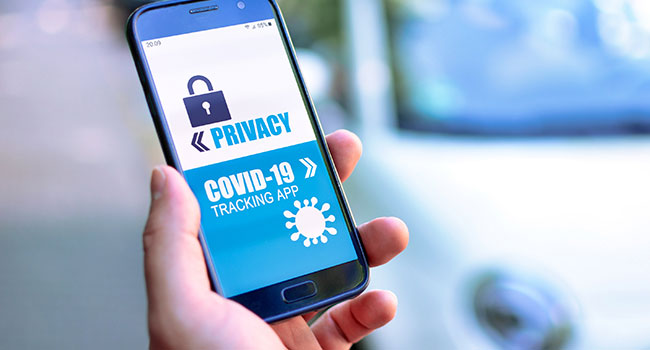
COVID Has Made Privacy a Concern, An App Survey Finds
- By Yoav Degani
- Sep 09, 2020
The pandemic has been a great equalizer in the fears it has unearthed. Regardless of country, socioeconomic status or age, we have all shared concerns for our own health and that of our loved ones.
As health takes center stage, dominating the news cycle and our personal lives, and as we acquaint ourselves with COVID-19’s symptoms and ways to limit its spread, a surprising concern has emerged: personal privacy. In the midst of a pandemic, caused by a mysterious and unwieldy respiratory virus, people find themselves increasingly fearful for the preservation of their private digital lives.
I had heard similar anecdotes from my customers of our app, MyPrivacy, which focuses specifically on personal privacy protections. But when we formally tested this, I was surprised at what we found: one third of our users said that the COVID-19 pandemic has made them more concerned about privacy.
Keep in mind that this increase is reported by a subset of the population that was already more concerned about privacy than the average consumer. To have their concerns increase during a public health crisis, in which personal health and a mounting global death toll has sucked the air out of most major issues -- like sustainability or geopolitical conflicts -- is significant. It is a sign of where the average consumer is likely to go. I attribute this to several reasons.
The first is our abrupt move to working from home. For most countries, the urgency of the pandemic offered little time for organizations to plan for their employees to shift to working from home. This rushed transition means no proper networking set-up, and entire workforces working from spotty, unsecured home Wi-Fi configurations. You can’t expect every employee to use a VPN (or even understand what a VPN is). Even if a network is secure, there is an array of complications that result from such a large-scale change in how many people work: a slew of new passwords, which cause inevitably risky short cuts, and the emerging security flaws with remote work platforms, as we’ve seen with Zoom.
Wide-sweeping public health measures have also stoked privacy fears. Governments have been quick to enact efforts like track-and-trace, which are noble and undoubtedly life-saving initiatives, but entail serious invasions of our personal information and lives. While these measures could be effective at flattening the curve, they certainly create a slippery slope for data collection. Governments are not wired to easily give up assets, and the ability to track movements and activity is certainly viewed by authorities as an asset. Once we’ve opted into these sorts of government-sponsored efforts, I fear they will be difficult to reverse.
So what specific privacy issues were users concerned about? The widespread sharing of medical records or COVID-19 status? Hardly. The insights we gleaned into which privacy issues were top-of-mind for global citizens dealing with a life- and economy-threatening pandemic were just as surprising as the fear itself:
1. Keeping prying eyes off photos and videos
2. Safeguarding emails
3. Hiding location and financial information
4. Concerns over government spying
Number 1 was ahead by miles -- showing there is something almost sacred about the images we store in numbers never before known in human history. Yet apart from number 4, perhaps, these concerns could have been cited during any time in recent history -- let alone during a once-in-a-century pandemic. Do these findings show consumers’ unwavering commitment to personal privacy? Or an inability to see the forest through the trees and a larger looming threat?
I believe the answer lies in the shared experience of COVID-19 fatigue. As a global society, we have all suffered from the malaise of this pandemic, its end-date, and the relentless collateral damage which made clear that in some ways the cure may be worse than the disease.
This fatigue has caused us to blindly opt into policies and experiences which at their core do not protect or even respect our personal privacy. We have said “yes” in an attempt to make this all go away, which it hasn’t. And despite the vague promises of a vaccine, it might not go away for quite a long time.
That’s where I believe this sentiment is coming from: the awakening of COVID-19 fatigue, in which consumers are catching on to the reality that the world is now more invasive and prying than the one we knew at the end of 2019. Now that consumers are starting to understand that this pandemic will not go away by downloading an app, or working from home for two months, they are assimilating themselves with what matters most, and settling in for the long haul.
We as security providers and privacy professionals can help in this transition: first, by acknowledging the shift in priorities and the long road we’ve taken to get here; second, by enacting policies and creating technologies that address the difficult decisions faced by consumers on privacy. We can do this with easier opt-out policies, time restricted data collections, and clear communication of the value of seemingly privacy-evading measure in those cases where they are truly in people’s best interest.
If this snapshot into the mind of the consumer tells us anything, it’s that privacy will reign again as a chief concern, despite it falling from center stage during a distracting time. We’d be smart to be proactive and empathetic about this shift.